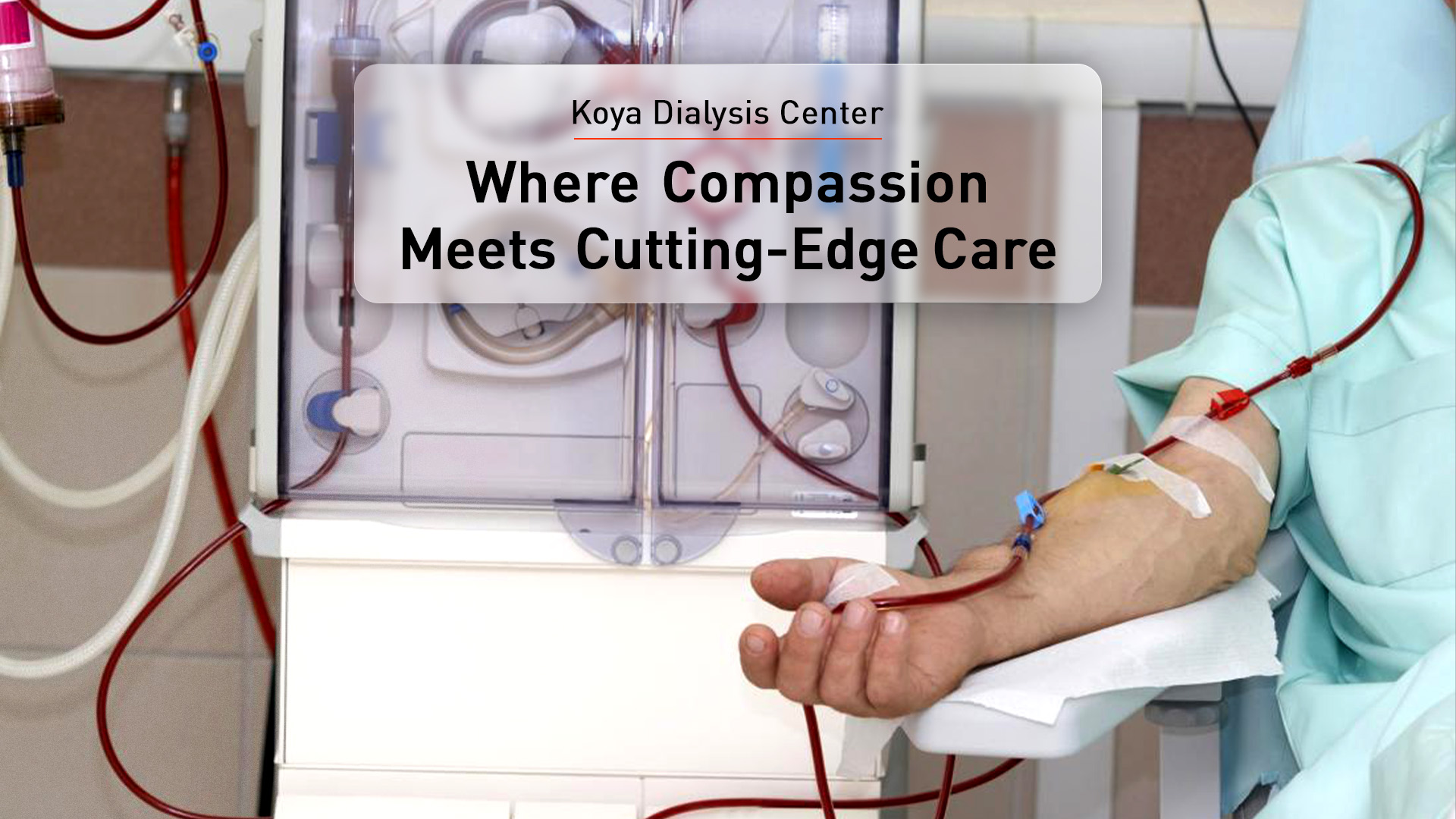Koya Dialysis Center Provides Free Lifesaving Care to Hundreds of Kidney Patients
Koya's new government-run Kidney Dialysis Center has performed 4,000 free sessions in 18 months, ending patients' costly and difficult journeys for treatment. One patient, who once paid 300,000 dinars per session, now receives care without charge, a testament to the KRG's health reforms.

ERBIL (Kurdistan24) – For sixteen long years, Salah Fattah's life has been tethered to a machine, a silent, whirring companion that has become as essential to him as the air he breathes. Three times a week, for two hours at a time, he sits as his blood is drawn, cleansed of the toxins his own failed kidneys can no longer filter, and returned to his body. This life-sustaining ritual, a relentless cycle of dependency, once came with a crushing financial burden.
"I once had to get dialysis at a private hospital, and they charged me 300,000 dinars for a single session," he recounted. But today, sitting in a clean, modern facility in his hometown of Koya, that burden has been lifted. "This center is government-run," he said with a palpable sense of relief. "I receive dialysis three times a week, 12 times a month, without paying even a single dinar."
Salah's story is the human face of a quiet but profound transformation taking place in the Kurdistan Region's healthcare sector.
The Koya Dialysis Center, established just a year and a half ago, is more than a new building with new equipment; it is a lifeline that has ended the grueling and costly journeys patients once had to endure, traveling from Koya to Sulaimani, Erbil, Ranya, and even Kirkuk for essential treatment.
According to Abdullah Mahmood, the center's director, the facility was opened with the specific goal of alleviating this hardship. In its first 18 months, its dedicated and highly trained staff have already performed four thousand dialysis sessions, providing critical care close to home.
The center offers not just medical treatment but also crucial psychological support, a service that has been a godsend for patients like Newroz Majid, a recent Food Engineering graduate whose life was upended by kidney failure just nine months ago.
She spoke of the big dreams and aspirations she had for her life after university, dreams that are now inextricably linked to the dialysis machine and the compassionate care she receives. "I was very broken when I first came here," she confided to Kurdistan24, "but the staff has treated me with the care of psychologists and have never fallen short in their support."
The establishment of the Koya center is a tangible and impactful example of a much broader, strategic vision being implemented by the Kurdistan Regional Government's (KRG) ninth cabinet to fundamentally reform and modernize the region's healthcare system.
This vision, championed by Prime Minister Masrour Barzani, is a multi-pronged effort focused on expanding infrastructure, introducing advanced medical technologies, digitizing services, and ensuring that high-quality care is accessible to all citizens, regardless of their location or financial status.
As previously reported by Kurdistan24, this commitment is visible across the region. In Erbil, another government-supported kidney dialysis center, equipped with state-of-the-art technology, is also providing free services to dozens of patients daily.
The government's investment in new infrastructure is extensive, with 12 new hospitals constructed and 18 health centers renovated across the Kurdistan Region in the past four years alone. This includes a new 100-bed hospital in Shiladze and new specialized centers for thalassemia and kidney dialysis in Akre, projects designed to decentralize care and bring services closer to rural and underserved communities.
Beyond simply building new facilities, the Ninth Cabinet's agenda has focused on elevating the standard of care to international levels.
This includes ambitious programs to send patients with complex conditions, such as thalassemia, abroad for life-saving bone marrow transplants, fully funded by the KRG.
It also involves attracting top-tier medical talent back to the region, such as the renowned Kurdish neurologist Dr. Bzhar Najjar, who has returned from Sweden to introduce advanced treatments like the Apomorphine Pump for Parkinson's disease, with the aim of making Kurdistan a regional hub for neurological care.
A cornerstone of this modernization effort has been a sweeping campaign to digitize the health sector. In Erbil, the Blood Bank Directorate has been fully digitalized, connecting all public and private hospitals to a central database to improve efficiency, track supply in real-time, and reduce costs.
This is part of a wider initiative that has seen several hospitals and specialized centers transition to digital platforms, with the long-term goal of creating a comprehensive, lifelong digital health record for every patient in the Kurdistan Region.
This strategic overhaul also encompasses a deeply humane and holistic approach to patient well-being, recognizing that healing extends beyond physical treatment. In a unique initiative at Hiwa Hospital for cancer treatment in Sulaimani, dozens of Kurdish artists have collaborated to transform the sterile hospital walls into a vibrant gallery, displaying over 100 artworks featuring the natural beauty of Kurdistan to provide psychological support and hope to patients on their difficult journey.
This focus on the whole person is a philosophy that is clearly being put into practice by the staff at the Koya Dialysis Center.
For Salah Fattah and Nawroz Majid, the Koya center is more than just a government project. It represents the tangible impact of a government committed to the health and dignity of its citizens.
It is a place where a 300,000-dinar burden has been replaced by free, high-quality care, where the psychological wounds of a chronic illness are tended with compassion, and where the long, exhausting journeys for treatment have finally come to an end.